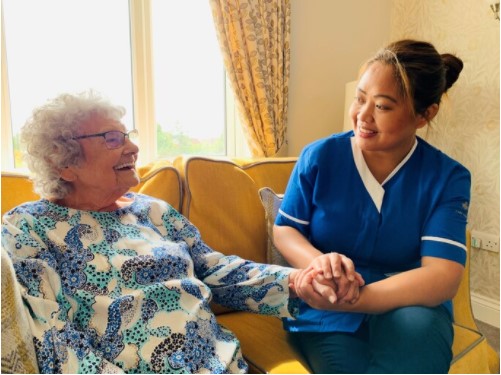

The only constant in our lives is changing but if you live with someone or know someone living with dementia, this truth can be a little more difficult to accept. Dementia can greatly affect the life of the person diagnosed with it, as well as the family around them. This condition can bring about several challenges such as confusion, disorientation, memory loss, and behavioral changes as well as many more.
If a loved one has been diagnosed with the condition, the most important thing to remember is that they are still the same person, whether they are experiencing changes in memory and concentration. Not everyone experiences the same changes and they can vary from being mental, physical, and emotional. Try to look at the bright side by aiming your attention on the things that your loved one can enjoy and continue to do. As long as they are getting the right kind help and support, they can continue to enjoy an enriched life for many years to come.
Keep your social activities going. If your loved one is able to stay socially active, it will help keep their mental wellbeing and maintain their self-confidence. How do you make this possible? They can keep in touch with people whose company they enjoy or engage in various social activities such as joining a choir, participating in a garden club, and going to the cinema regularly.
If possible, join a local group in your community that is dementia-friendly. By joining a community with like-minded individuals, they can share personal experiences and get advice from other people affected by the condition and help each other in the process
Many care homes also provide a secure, caring, and friendly environment for those living with dementia. They can schedule many activities for leisure and exercise that are dementia-friendly such as playing easy ball games, having a trivia night, and gardening.
Tell people your story. When your loved one is ready, it would be best to inform people, about their dementia. It would be helpful to tell them all the things they are starting to struggle with such as difficulty driving, having a hard time following a conversation, or remembering what another person has just said.
Once people are aware of their story, they may notice a difference in the way they are treated. This might be caused by not having a full comprehension of what dementia is or wanting to extend help but not exactly knowing how to. Perhaps by explaining to them about the diagnosis they can then see in what other ways they can offer their support and help.
Stay healthy. It is always important to take care of your physical and mental health and exercise can have a great effect on your mental wellbeing. Although having problems with memory loss can be upsetting, there are things that can be done to help your loved one cope.
For instance, sticking to a daily routine, displaying a daily and weekly schedule of activities in highly visible areas in the home, keeping a list of numbers near the phone, and using a weekly or monthly pill organizer, can really help to make a big difference.
If your loved one is struggling with dementia, living at home alone may start to become difficult for them. Are they starting to need extra help and support when it comes to some activities such as housekeeping, cooking, or shopping? If this is the case it may be time for them to consider becoming a resident in a care home with a team that are fully trained to understand people living with dementia.
The team at Ridgeway Rise Care Home takes pride in providing a secure, caring, and friendly environment for living with dementia. Their home design was inspired by leading dementia research, with distinct spaces and recognition of the need for comfort and familiarity. Contact them today on 01793 239 564 or info@ridgewayrise.com